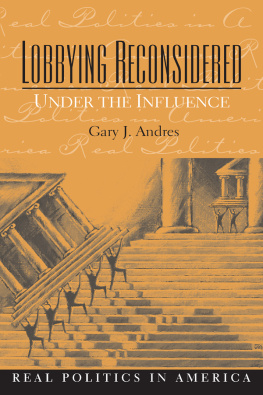The Wilson Governments 19641970 Reconsidered
This book provides a fascinating re-assessment of our view of the Wilson governments of 19641970. This new text draws on newly available sources, across the range of British government, and for the first time looks at the whole range of political and state activity. This critical appraisal provides a fascinating case study of British government in action in this key period of British History.
This book was previously published as a special issue of the leading journal Contemporary British History. It is an excellent resource for students of governance, foreign policy, economics and social policy.
Glen OHara is a Senior Lecturer in Modern History at New College, Oxford.
Helen Parr is a Lecturer in International Relations, Keele University.
First published 2006 by Routledge
2 Park Square, Milton Park, Abingdon, Oxon, OX14 4RN
Simultaneously published in the USA and Canada
by Routledge
270 Madison Ave, New York, NY 10016
Routledge is an imprint of the Taylor & Francis Group, an informa business
2006 Taylor & Francis Ltd
All rights reserved. No part of this book may be reprinted or reproduced or utilised in any form or by any electronic, mechanical, or other means, now known or hereafter invented, including photocopying and recording, or in any information storage or retrieval system, without permission in writing from the publishers.
British Library Cataloguing in Publication Data
A catalogue record for this book is available from the British Library
Library of Congress Cataloging in Publication Data
A catalog record for this book has been requested
ISBN10 0-415-35634-2
ISBN13 978-0-415-35634-3
Glen OHara and Helen Parr
Harold Wilsons Labour party came to power in October 1964 with a pledge to modernise Britain. Modernisation was the omnibus phrase that he used in each and every area of policy, from the shape of the economy to Britains military commitments abroad. The idea was not limited to his famous speech at Labours 1963 Conference in Scarborough, in which he invoked the white heat of the technological revolution. It was, rather, a constant theme in Labours appeal to the electorate. Science and the Future of Britain, Labours 1961 statement of aims in that field, set out new ways to achieve the expansion and modernisation of our industries. As chairman of the Science and Industry group of the National Executive Committee, Wilson was intimately concerned with that pamphlet, and with bringing scientists and other experts into the policy-making process.1 In his very first meeting with the TUC after becoming prime minister, he told trade union leaders that modernisation and the National Plan were his priorities.2
Harold Wilson also emphasised modernity in foreign policy. Following the Conservatives failure to enter the European Community, Wilson encouraged the Labour party to view Commonwealth regeneration as an alternative. Genuinely committed to the strengthening of Commonwealth links, Wilson maintained that Britains international role would be best served by assisting the worlds poorest nations.3 The Commonwealth offered Britain leadership and influence and the moral dignity of assisting a diverse, underdeveloped and multi-racial grouping.4 In defence policy also, the Labour government would seek to bring stability to underdeveloped areas, concentrating resources not in Europe but in and around the Indian Ocean SEATO and the Gulf.5 Labour and the left felt that it was modern to trade preferentially with the worlds poorer nations, rather than to concentrate trade with the wealthy, developed nations in Europe.6 In 1961, Wilson had argued that we are not entitled to sell our friends and kinsmen down the river for a problematical and marginal advantage in selling washing machines in Dusseldorf.7 In February 1964, Wilson outlined a ten-point plan for development of trade with the Commonwealth, and commitment to the Commonwealth was the central aspect of Labours election manifesto.8 Although Wilson had little intention of seeking membership of the EEC following the French veto on British accession in 1963, he emphasised technological connections with the European countries. Genuinely alarmed by the gap between American and British standards in research and development, Wilson maintained that co-operation with Europe, particularly with the French, could provide the means to bolster technological innovation in Britain.9
Wilsons popularity, based as it was largely on this modernising platform, dissipated once it became clear that carrying it out would be much more difficult than Labour had thought. The deflationary economic package of July 1966, and even more significantly the devaluation of 1967, were vital in this fall from grace. Within a month of the first crisis, the Conservatives had gained a slender lead in the opinion polls, even though they had trailed Labour by 21 percentage points just after the general election that had been held in the spring. The Economist spoke for most commentators when it noted that Wilson had lost the rudder, and that the public wanted to kick Mr Wilson up the bottom. It was, thought the cabinet minister Richard Crossman, the most dramatic decline that a prime ministers reputation had ever suffered.10 The Conservatives made great play of the national humiliation of devaluation, as did the largely pro-Conservative newspapers. The Daily Mail compared Wilson unfavourably to Churchill, and pointed to the effects of increasing foreign development aid under Labour. Tory MPs talked of a new Munich, and argued that socialism inevitably led to a weak and declining currency.11
Similarly, Wilsons failure to refocus Britains foreign policy role around the Commonwealth led many commentators to argue that even the attempt had been fundamentally misconceived. The humiliation of the Rhodesia crisis, as Ian Smiths white minority government declared independence from the British crown, added to the sense that Britain could not hope to lead such a heterogeneous group. Thus, Wilsons foreign policy has been interpreted as another delusion of grandeur, draining the resources of the state into needless international adventures.12 Modernity, some claim, lay in a progressive peace in Europe, and Wilson was slow to turn his attentions there.13 However, once Wilson did attempt to enter the European Community, his inability to do so led to cries of insincerity: another Wilsonian initiative had bitten the dust.14
The left also turned on Wilson, accusing him of undermining all Labours declared aims. There has been continuity of Tory policy on the major problems, accused one representative article in Marxism Today: the economy, the pound, wage restraint, support for the US war in Vietnam, hostility to the national liberation movements There is no proposal to curb, still less end, the power of Big Business. There is no proposal to end the exploitation of labour for capitalist profit.15 Nor did the Labour right have much reason to praise Wilsons achievements. The Social Democratic party, to which many Labour MPs defected in the early 1980s, was to some extent built around an explicit rejection of his legacy. Wilson had appeased the trade unions, their argument went, and failed to make incomes policies work; allowed unrealistic public spending pledges and inconsistent economic management to harm the economy; neglected party democracy, the only sure bulwark against a takeover by the left; and failed to make a really enthusiastic case for Europe.16












